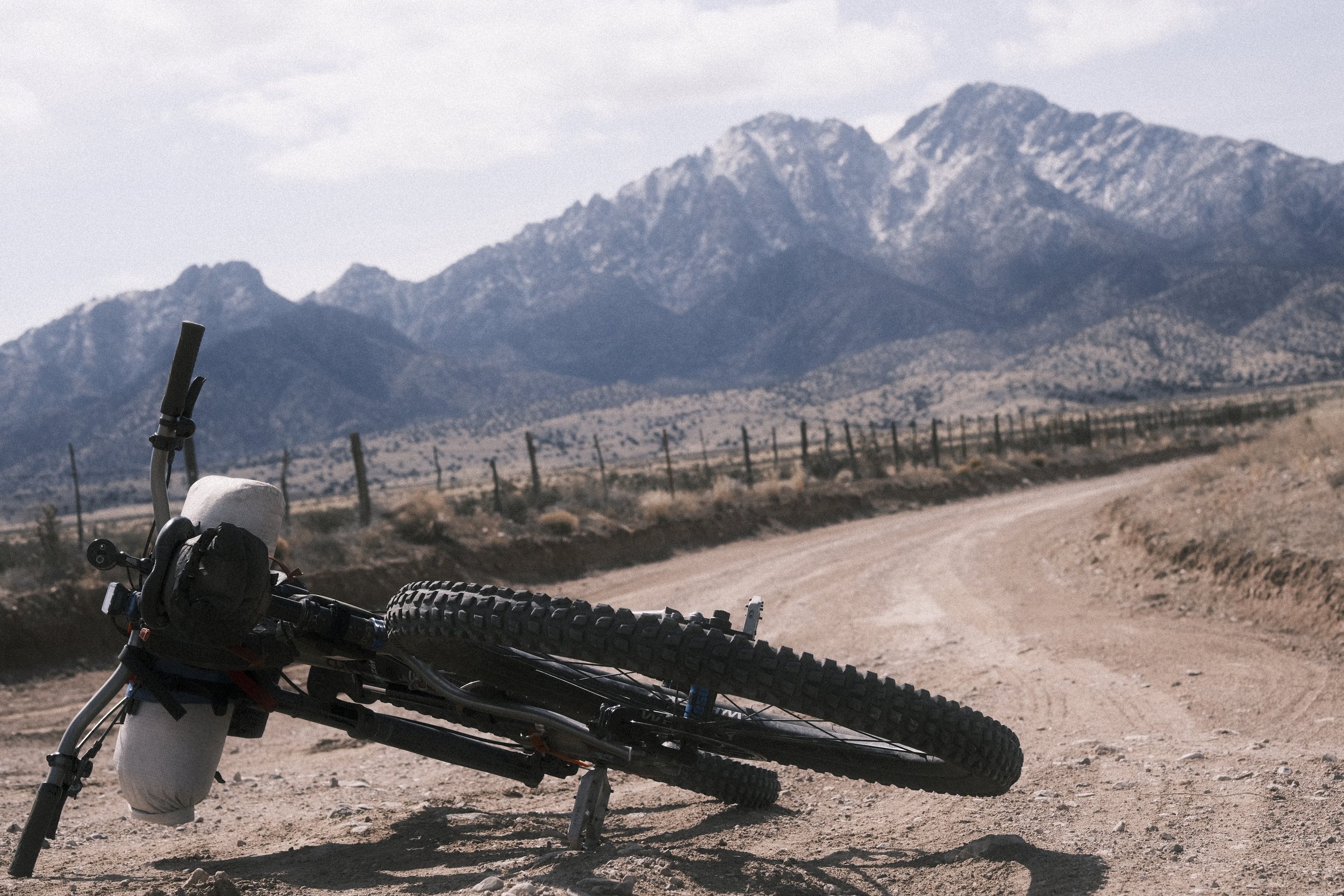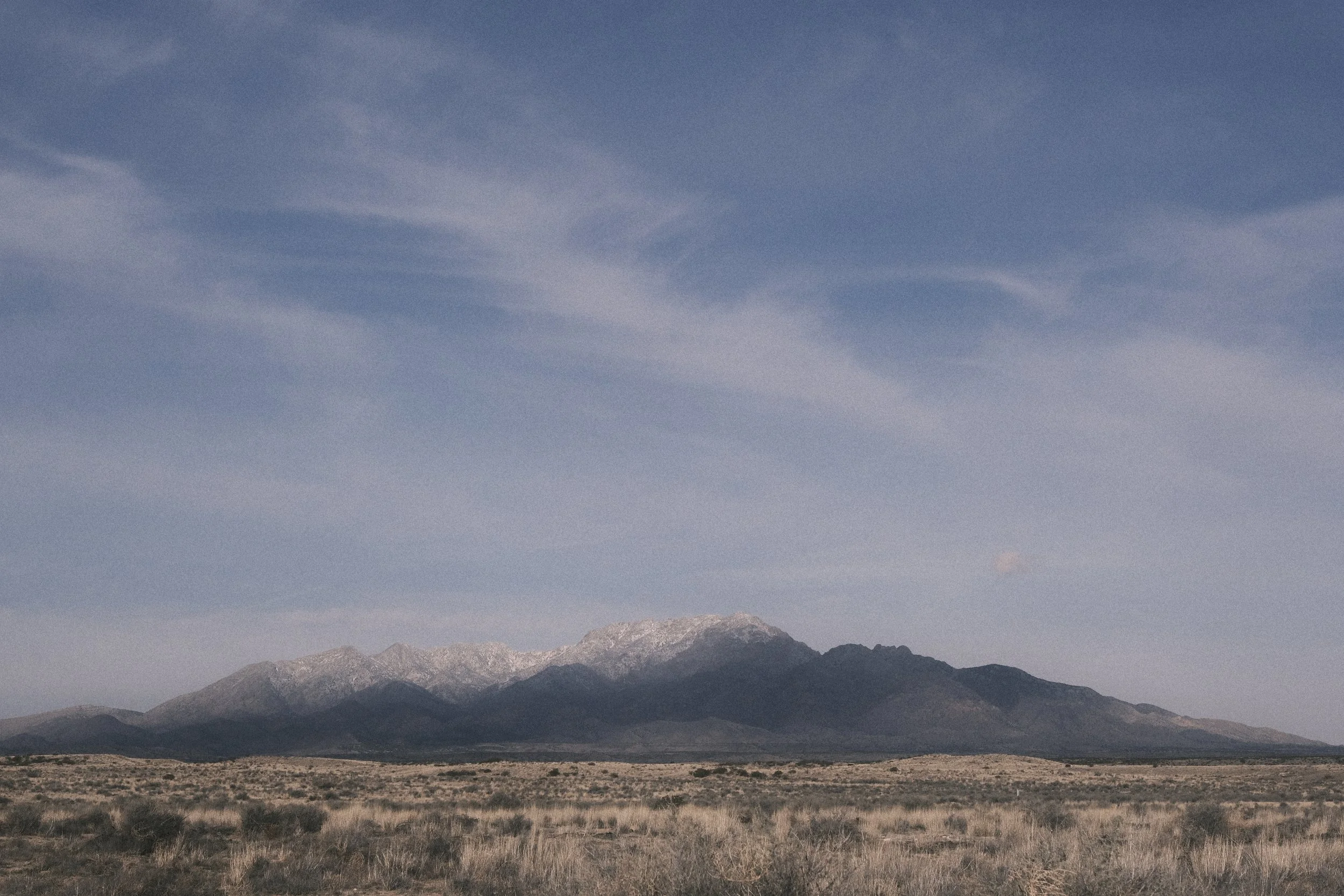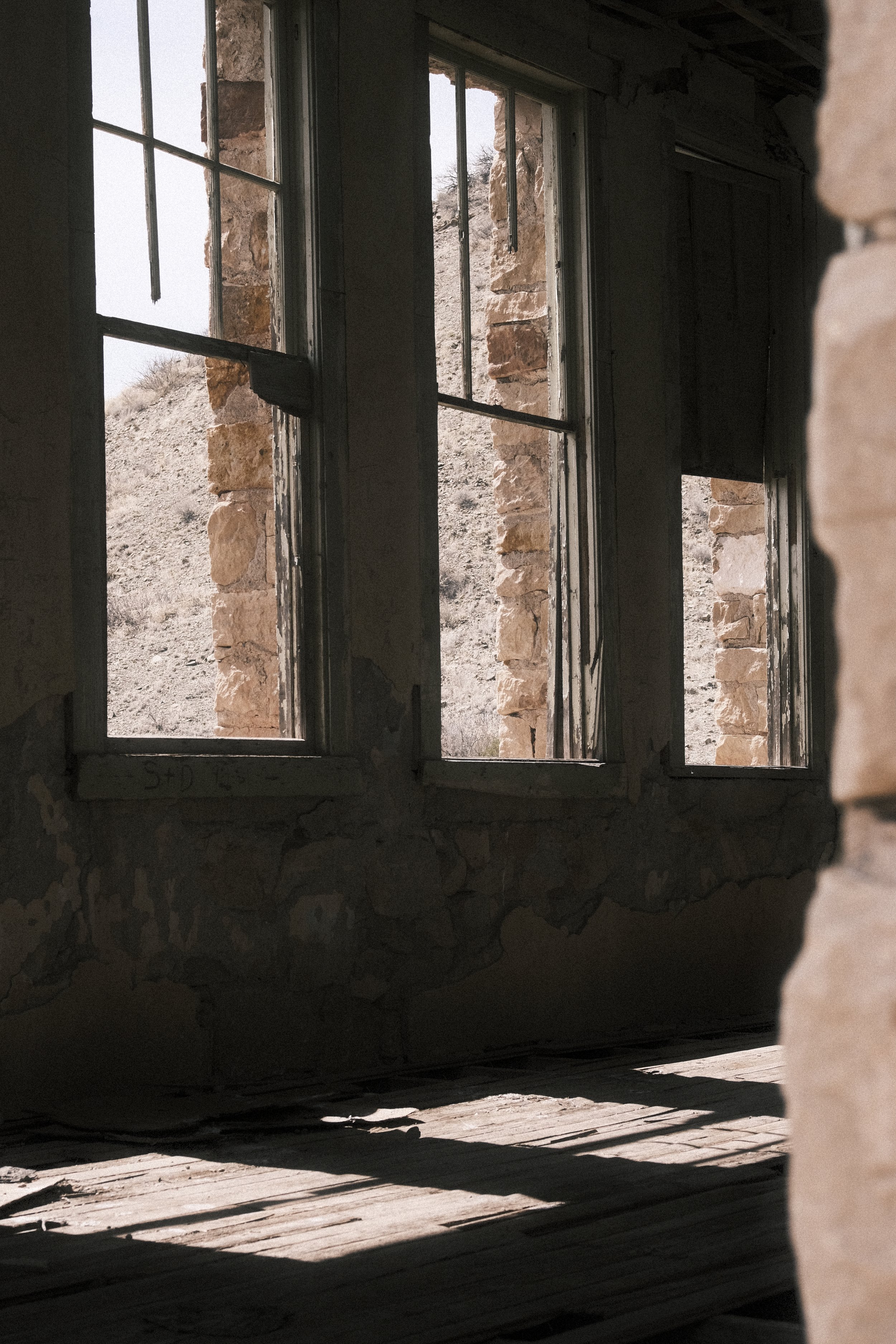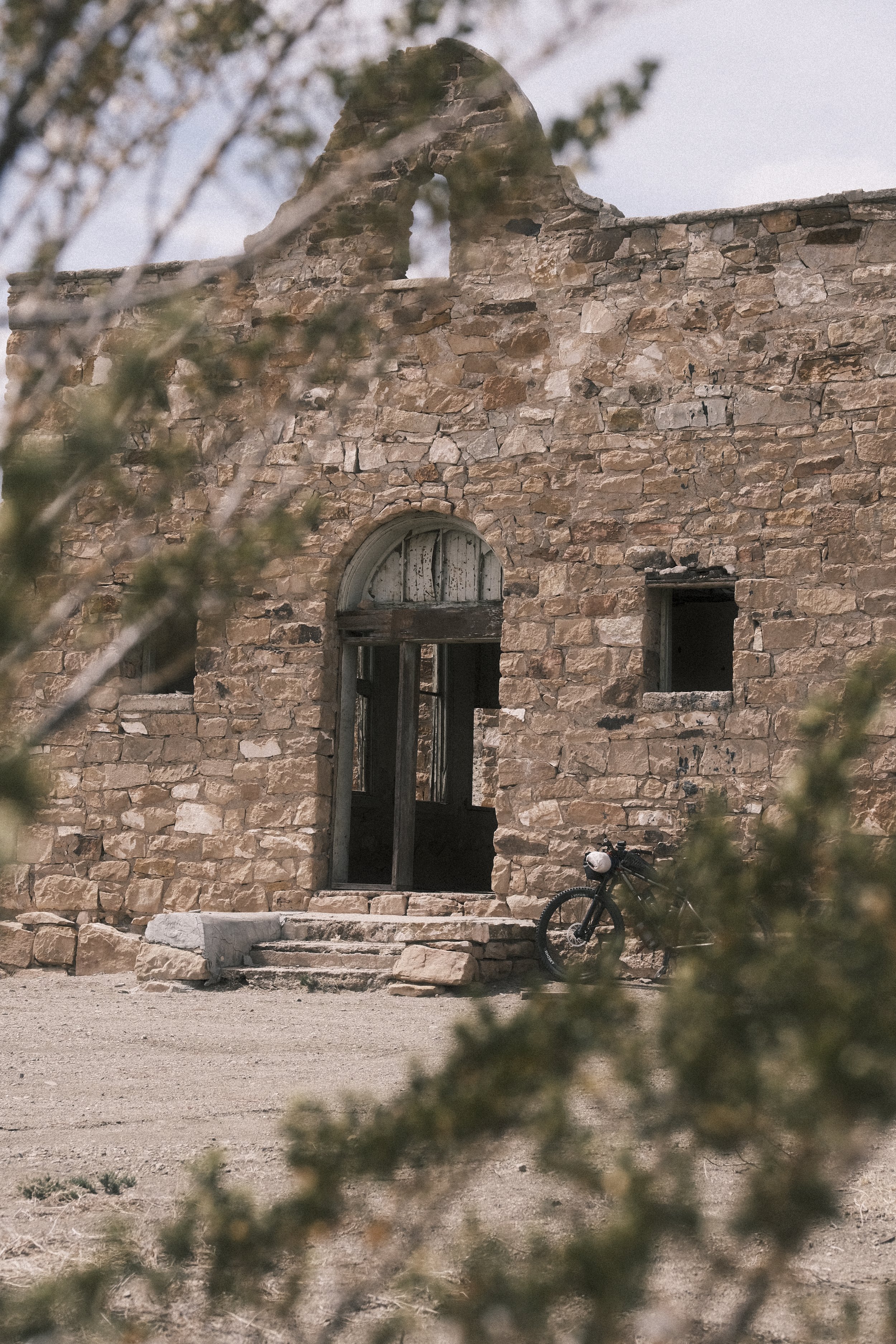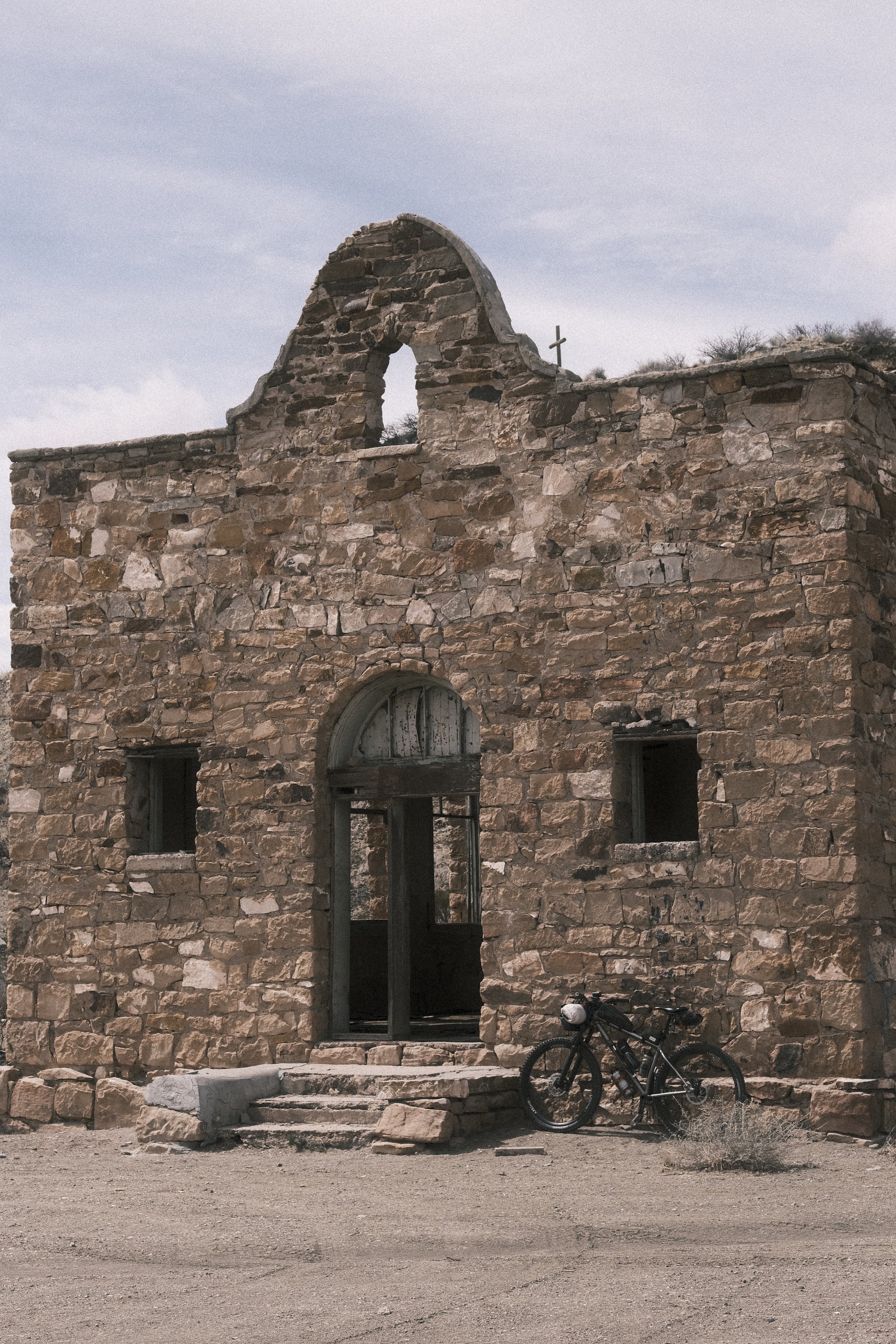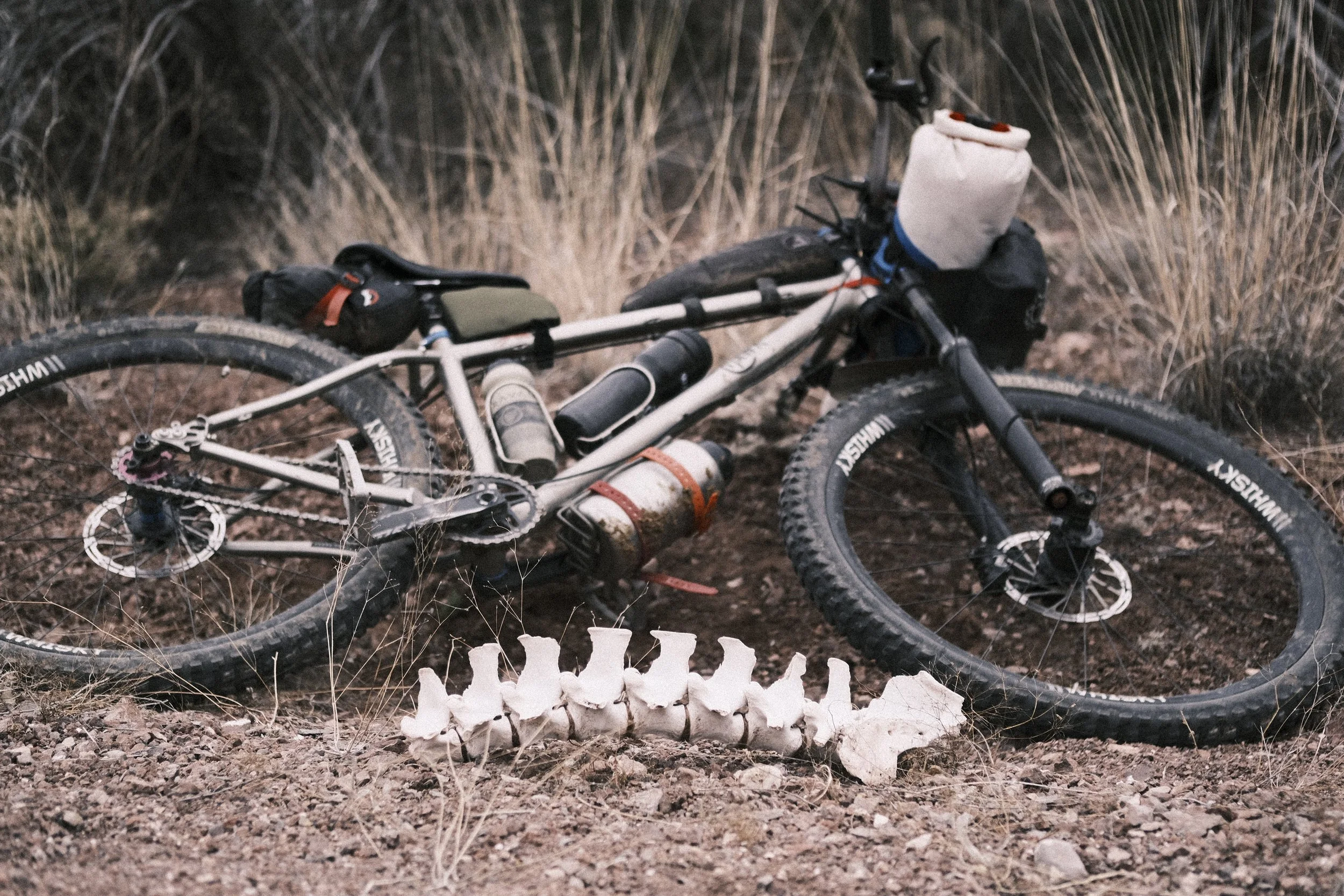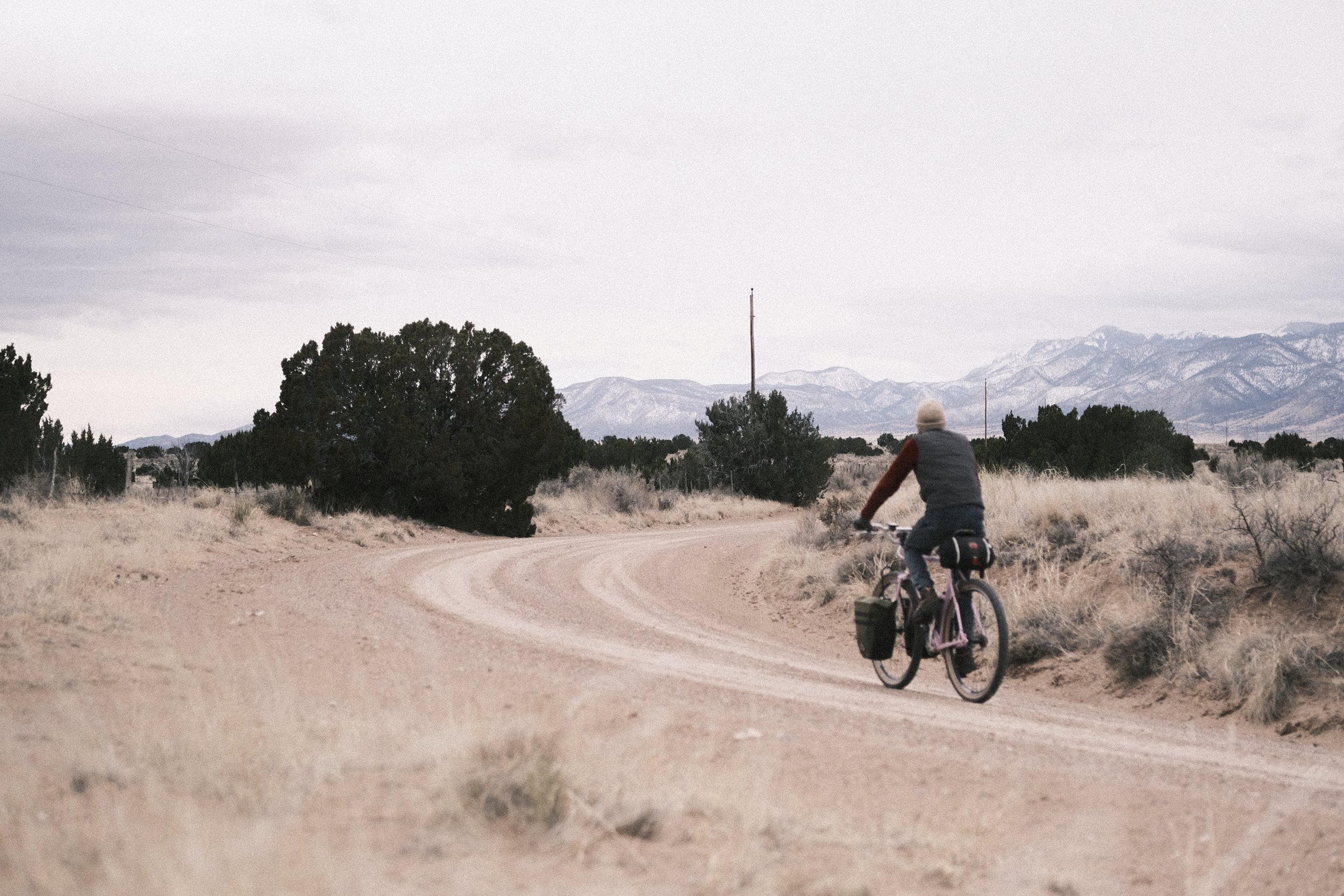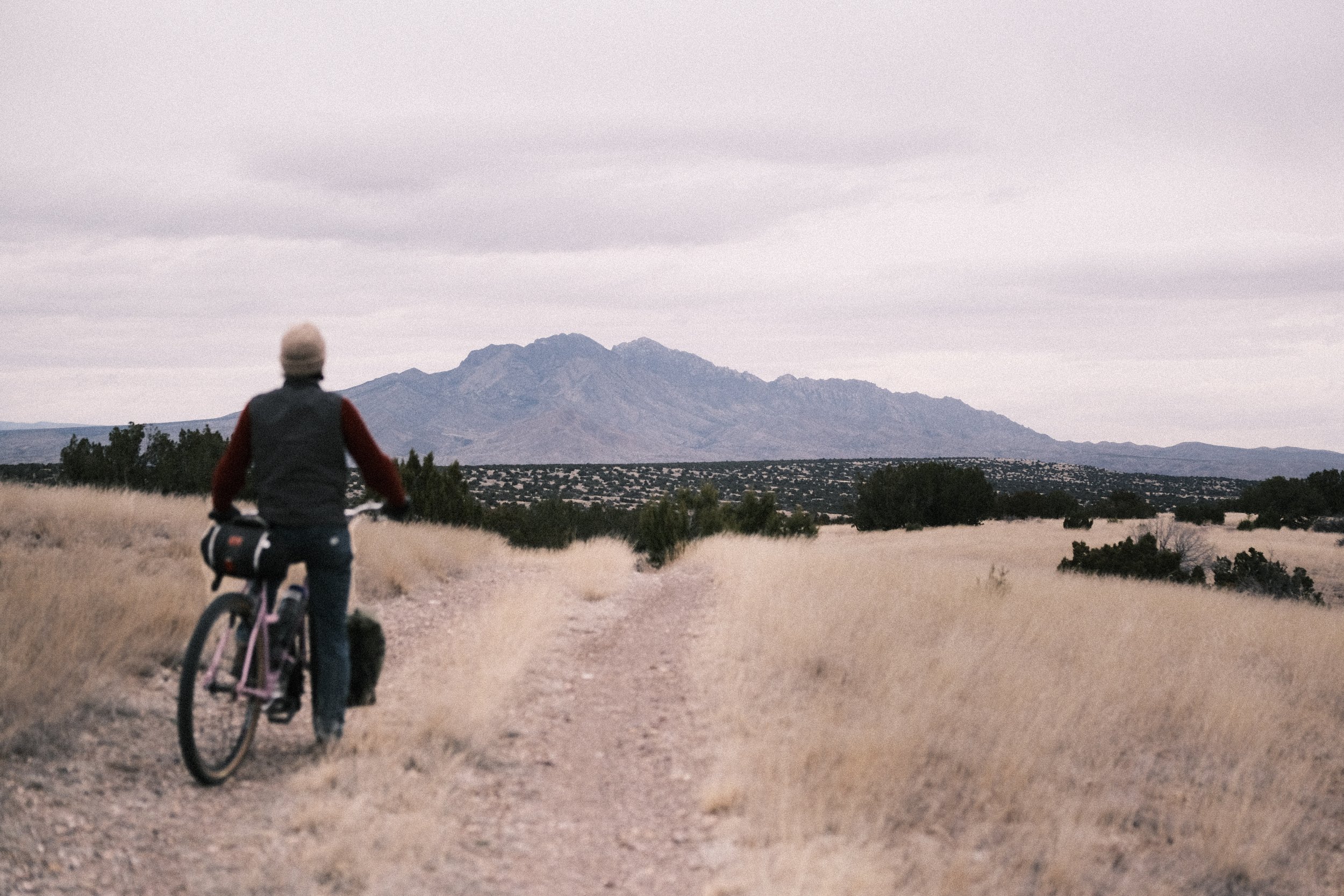Dancing in the Desert
The Tango of Dirtbagging and Healthcare
(This story originally appeared in the End of Daze, issue No.2 - Enjoy a few additional photos and higher image quality.)
Sleep is fleeting when my toes are so cold they ache. “Perhaps rolling over to my other side will get me better insulation” I think. The movement of turning shakes my bivy and with it, the condensation-turned-ice precipitates, landing on my face. The frigid shock jolts my lethargic mind. I flop to my stomach thinking, “at least if more ice falls on my body, I probably won’t feel it on the back of my head.” The new posture permits me to see the dimly lit camp and my frozen shoes, frozen bicycle, frozen hip pack, and the frozen desert mountains. A sigh of reluctant acceptance is all that I have to offer this situation. Let the dance begin.
An unusual choreography is prerequisite for survival as a healthcare professional. The dance is intense. The logical balance to this intense dance would be a period of relaxed flow. But logic need not to apply - where we are going logic is only a hindrance. Don’t think rationally about the madness that is our healthcare system for surely that will crush you. Intelligence does not inherently yield survival (evolution provides numerous examples of this).
Mustering what will power I have, I take a deep breath and slip my feet into my ice encrusted shoes. “Some respite, eh?” My consciousness mutters to itself. Breaking down camp, my fingers freeze, matching the sensation of my toes. I prepare for my day by eating an energy bar, dried fruit, nuts, and drinking what little of my water is not frozen solid. Ahead of me is a ride deeper into the deserts of New Mexico. The plan is to follow faint lines seen on satellites and traverse forgotten Jeep tracks in an attempt to establish a new backcountry bikepacking route. Luckily, I managed to convince a friend, Bailey, to join me for this adventure because misery enjoys company.
As a nurse, the pandemic has not been a cake walk. The problematic institution of healthcare strained, moaned, creaked, and bent. I believe I speak for the bulk of healthcare professionals when I say that we met these stressors with focus and perseverance. I truly do want the best outcomes for my patients and I am happy to expend great effort to achieve that goal. A health crisis of the magnitude of COVID-19 provides exceptional opportunities to rise to the occasion and fulfill meaning and purpose as a hospital worker. Or, at least this is the paradigm we utilize to give meaning to this intense dance. But, what if meaning and purpose is not what healthcare professionals experience after such a crisis?
As we pedal forward, little of our day goes according to plan. Certain roads we mapped were unexpectedly closed to the public, so we re-route. Many of the faint trails we saw on satellite while planning this trip do not exist, so we re-reroute. The mellow wash we were to ride thorough drops off the edge of a cliff, so we re-route. The wind is picking up too and of course it is cold, strong, and blowing in our face. But both me and my comrade agree - it is beautiful country out here.
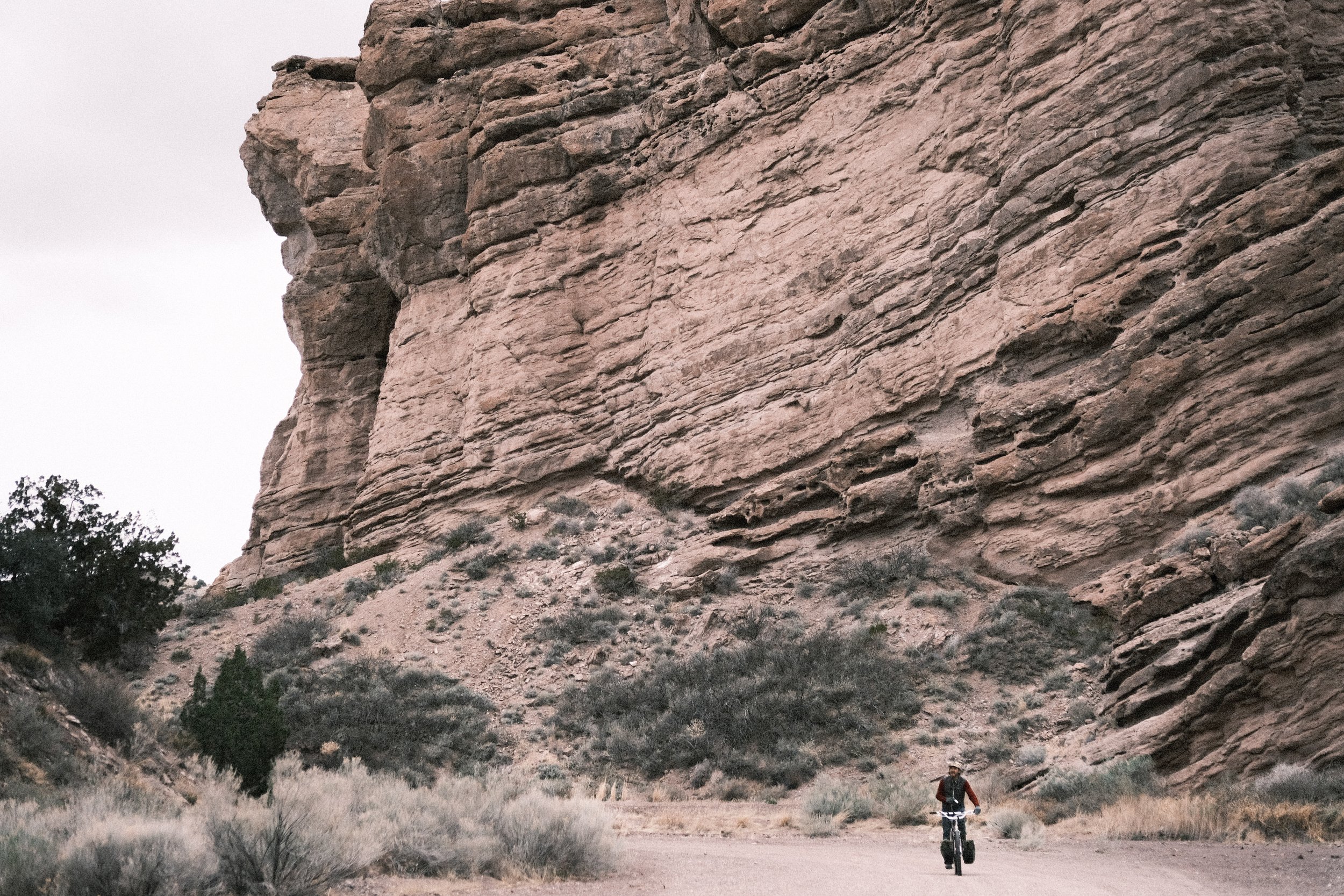
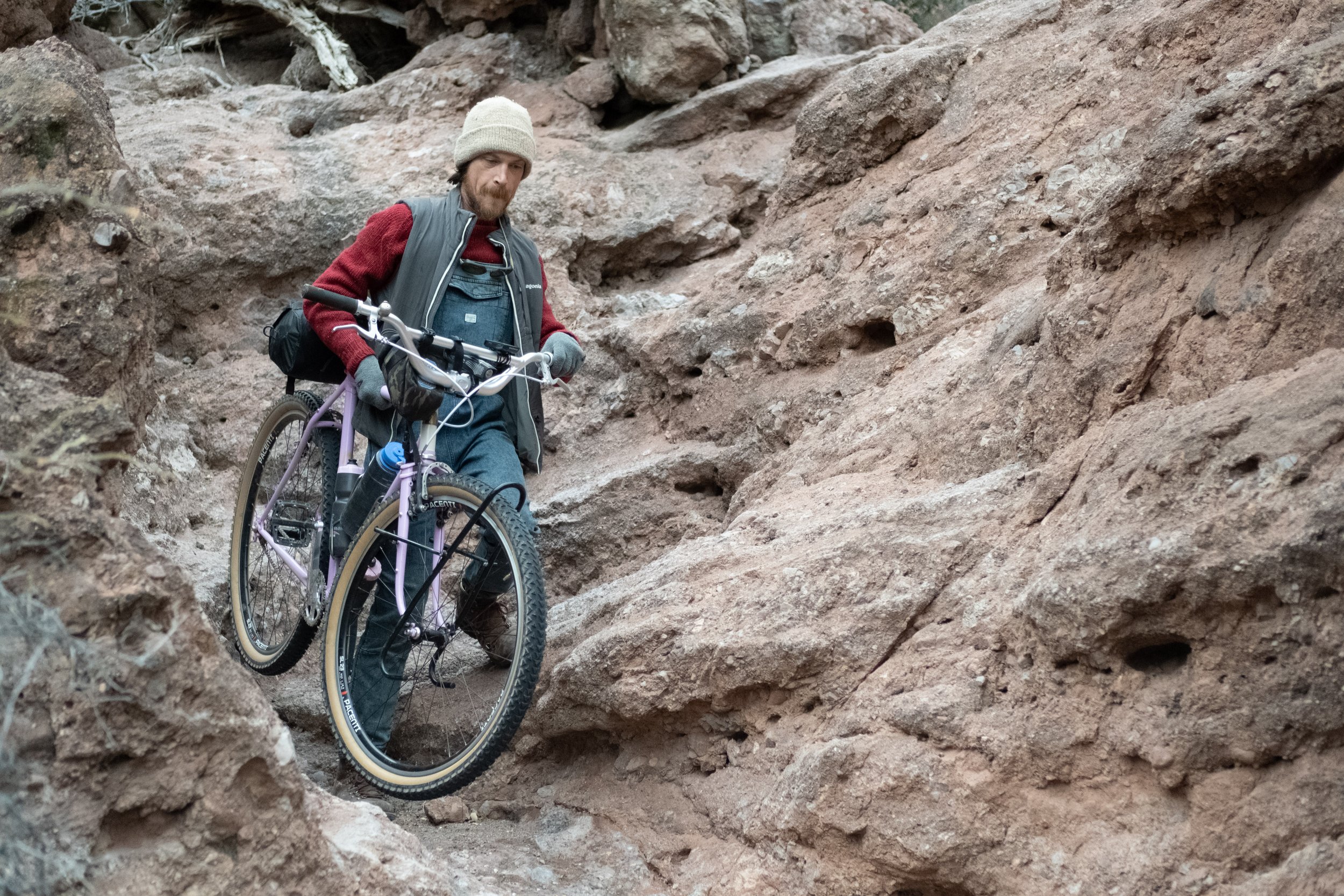
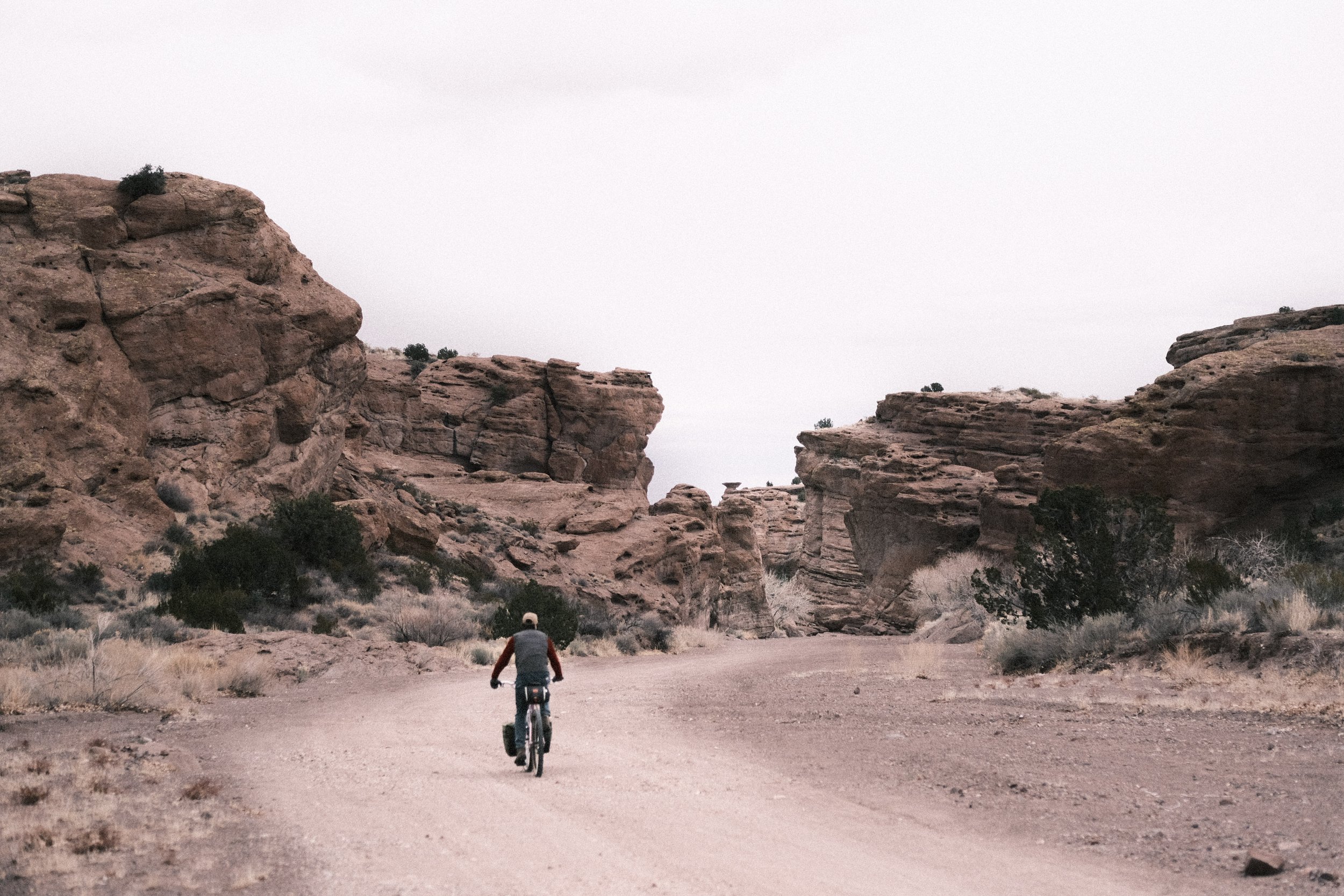
An alarming lack of support and lack of compassion from the hospitals, government, and corporations creates a different crisis in healthcare. Healthcare workers are burnt. A profession founded on helping those in need is buried in greed. Capitalism leeches off both those who are ill and those who desire to help the ill. How are we supposed to feel good about the care we provide when the first priority is always profit and quality care is distant second? We all suffer when greed is a society’s premier value. Can not one industry be exempt from this problem?
The riding on this janky route has been challenging. On one hand, we are in awe of the sheer cliffs of epic canyons, we witness dreamy sunrises, the solitude cannot be matched, and we get to live as nomads. On the other hand, I bonked harder than I have since I knew what bonking is (bonking is a profound physical/mental crash largely due to huge energy expenditures without adequate nutrition). Learning the dance to make it through these highs and lows is a challenge of mental fortitude. Do you face these problems with fiery strength and perseverance? Do you combat fire with fire? Do you relax and go with the flow? If you take it easy when the trail gets tough, will you ever make it to the end?
I am working less in the hospital now than I used to. I feel as though I survived for years in the hospital before making a change, but the intense dance does not conclude. It shifts. Now, I focus my dancing on the outdoors with the same perseverance as a hospital shift. It is amazing the shared skill set both the outdoors and the hospital demand: endurance, self reliance, focus, decision making, etc. I would argue that some of these skills should not be necessary to be effective in the hospital (endurance and self reliance for example).
There is a Zen to adventuring in the outdoors. Often, one must observe the difference between what she feels and what she needs to accomplish. In making this differentiation, the adventurer does not identify as being tired, sore, hungry, or thirsty. She acknowledges these strong sensations, but does not identify as being what she feels. “I am not tired. My legs feel tired. I am strong and I can/will keep going.” And so, with this mentality, Bailey and I are able to progress and complete our escapade through the New Mexican desert. The route did not go as planned, but we exercised Zen during the outing, reached our destination safely, and one might even say that we enjoyed the journey.
The problems that health care faces are mammoth and those in positions to improve health care systems are not brave enough nor imaginative enough to look past maximizing profits in favor of greater compassion. So, that places myself and all health care workers in a position where we must rely on skills akin to ultra-endurance athletes to function in our workplace. It is a fascinating application and crossover of skills, but perhaps we should make the dance a bit less intense.
In the end, all I can do is appeal to your sense of humanity. Be compassionate in all you do whether that is bikepacking, healthcare, administration, or simply purchasing groceries. Remember, we are all in this together.
